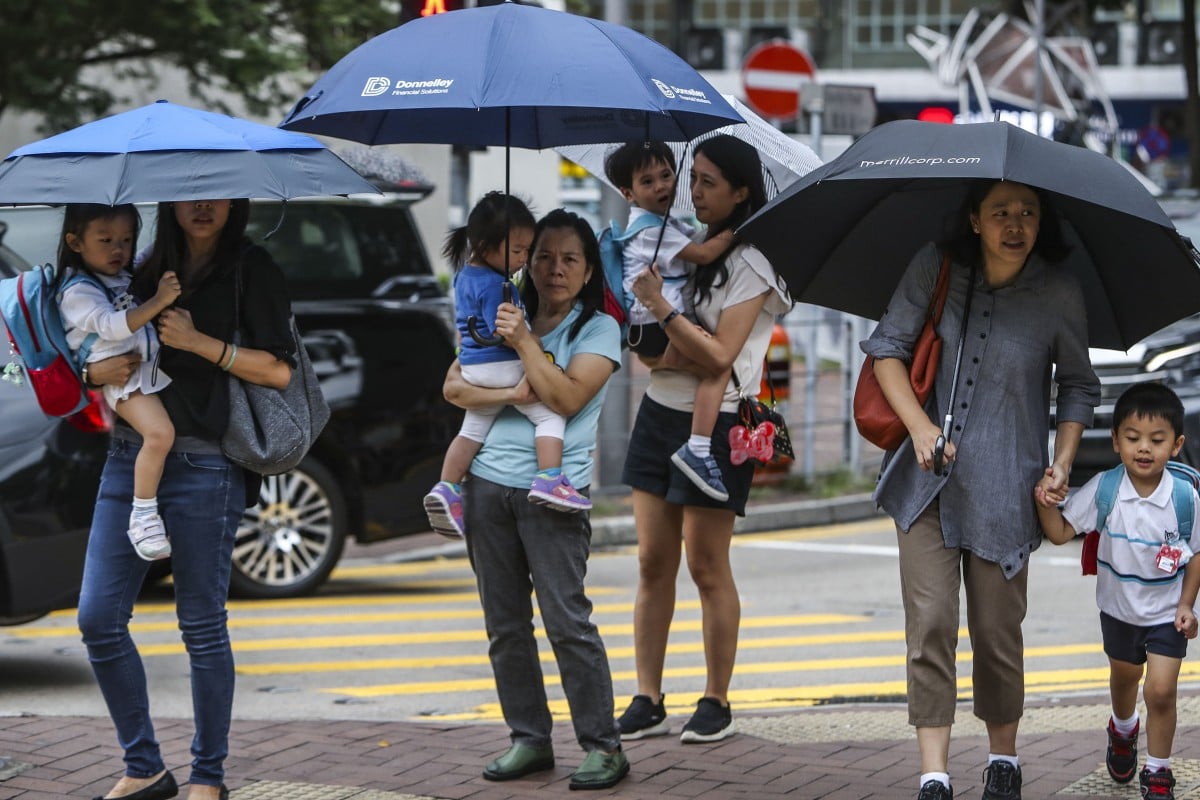
Study Buddy (Challenger): Recognise foreign domestic workers’ impact on Hong Kong families and wider society
- Study Buddy Challenger is for students who want to take their understanding to the next level with more difficult vocabulary and questions that will test their inference skills
- Check your reading comprehension using the questions below or in the linked Kahoot! game
 A study from Baptist University has found that Hong Kong couples who employ domestic helpers after having their first child are more likely to have a second. Photo: Winson Wong
A study from Baptist University has found that Hong Kong couples who employ domestic helpers after having their first child are more likely to have a second. Photo: Winson WongContent provided by British Council
Read the following text and answer questions 1-9 below:
[1] Much has been written about the rights and conditions of stay for domestic helpers in Hong Kong, and how local families have been inconvenienced by the disruption of supply because of the city’s Covid-19 travel restrictions on the Philippines and Indonesia. But there is scant documentation and recognition of their socio-economic impact on the lives of Hongkongers.
[2] A study by Baptist University researchers has gone some way to filling that gap. It found, for example, that couples who employed a helper after having their first baby were more likely to have a second, and were able to devote more time to parenting than families without help. That may not sound surprising, but it should bear closer attention in the context of the city’s low birth rate, ageing population and expensive, cramped housing.
[3] The researchers spoke to more than 2,000 married couples and interviewed 25 of them in depth between March 2019 and March 2020. Of one-child families with helpers, 43 per cent had a second child within six years, compared with 30 per cent without helpers. It is debatable if the figure would be higher if homes were bigger or helpers did not have to live with their employers.
[4] Adam Cheung Ka-lok, an assistant professor at the university’s department of sociology, led the study. Cheung said fewer than five in 100 local families hired foreign helpers in 1991, compared with nearly 15 in 100 in 2011, rising to almost 18 in 2016.
[5] In 2020, there were 374,000 foreign domestic helpers in the city. Last year, the Court of Appeal upheld a legal requirement since 2003 that helpers must live with their employers, as it was not convinced the live-in rule significantly increased the risk of their rights being violated. However, that is another issue.
[6] There is no question that cramped, expensive living conditions would make a couple think twice about having a child if they also needed a helper to live with them. Cheung rightly said the authorities should review the live-in rule, noting that “many families have difficulties engaging helpers because of limited living space”.
[7] The implications for the birth rate, which is well below that needed for natural population replacement, are clearly negative. That is just one way Hong Kong is paying a price for failed land and housing policies.
Source: South China Morning Post, November 22
Questions
Play a Kahoot! game about this story as a class or with your friends by clicking on the link here.
Or play on your own below to test your understanding:
1. Which of the following can replace “scant” in paragraph 1?
A. very limited
B. widely scattered
C. somewhat available
D. extremely unimportant
2. What does paragraph 1 suggest about domestic helpers’ contribution to the city and appreciation for the work they do? (2 marks)
3. According to paragraph 2, what are parents with domestic helpers able to spend more time doing?
A. pursuing their hobbies
B. advancing their careers
C. taking care of their children
D. all of the above
4. Find a word or phrase in paragraph 3 that means “open to discussion”.
5. According to paragraph 4, how has the proportion of Hong Kong households that employ a foreign helper changed since the 1990s?
6. What does the “live-in rule” in paragraph 5 refer to?
7. According to paragraph 6, why might the Court of Appeal’s decision last year affect a couple’s decision to have a second child?
8. Decide if the following statements are True, False or Not Given in the text.
(i) Couples with more than one child are more likely to live in multi-generational homes.
(ii) Most domestic workers prefer to be given lodging allowances instead of being required to live with their employers.
(iii) Families with two or more children are less likely to have a domestic helper than those with only one child.
(iv) The writer believes that the lack of space in homes is one consideration that Hong Kong couples have when deciding whether to have a second child.
9. Which of the following best describes the tone of this text?
A. descriptive
B. entertaining
C. persuasive
D. informative
Answers
1. A
2. They have a positive socio-economic impact on the lives of the city’s people, but their work is unappreciated.
3. C
4. debatable
5. It has grown from less than 5 per cent of local families in 1991 to almost 18 per cent in 2016.
6. a rule that requires foreign domestic helpers to live with their employers
7. because the live-in requirement means that families have less space to accommodate a second child
8. (i) NG; (ii) NG; (iii) F; (iv) T
9. D
